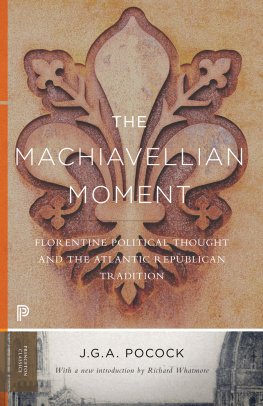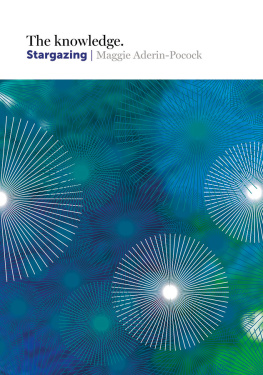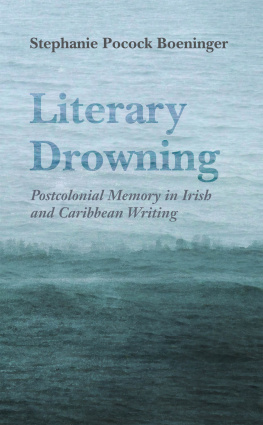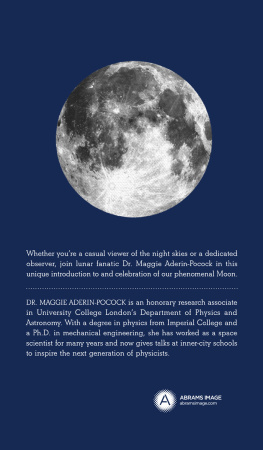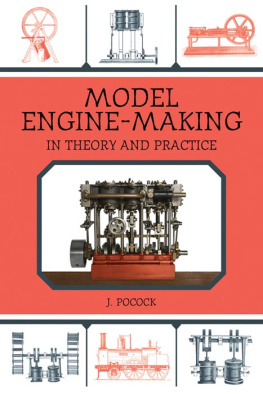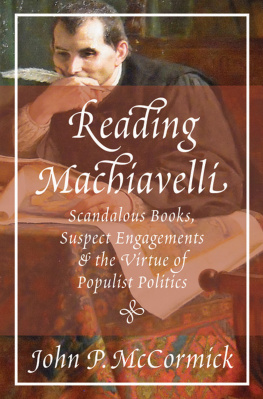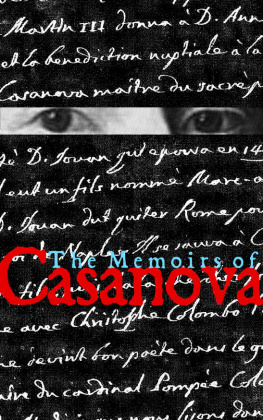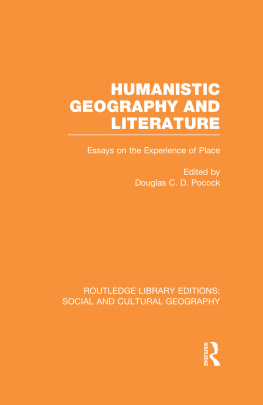Pocock J. G. A. - The Machiavellian Moment
Here you can read online Pocock J. G. A. - The Machiavellian Moment full text of the book (entire story) in english for free. Download pdf and epub, get meaning, cover and reviews about this ebook. year: 2016, publisher: Princeton University Press, genre: Art. Description of the work, (preface) as well as reviews are available. Best literature library LitArk.com created for fans of good reading and offers a wide selection of genres:
Romance novel
Science fiction
Adventure
Detective
Science
History
Home and family
Prose
Art
Politics
Computer
Non-fiction
Religion
Business
Children
Humor
Choose a favorite category and find really read worthwhile books. Enjoy immersion in the world of imagination, feel the emotions of the characters or learn something new for yourself, make an fascinating discovery.
- Book:The Machiavellian Moment
- Author:
- Publisher:Princeton University Press
- Genre:
- Year:2016
- Rating:5 / 5
- Favourites:Add to favourites
- Your mark:
- 100
- 1
- 2
- 3
- 4
- 5
The Machiavellian Moment: summary, description and annotation
We offer to read an annotation, description, summary or preface (depends on what the author of the book "The Machiavellian Moment" wrote himself). If you haven't found the necessary information about the book — write in the comments, we will try to find it.
The Machiavellian Moment — read online for free the complete book (whole text) full work
Below is the text of the book, divided by pages. System saving the place of the last page read, allows you to conveniently read the book "The Machiavellian Moment" online for free, without having to search again every time where you left off. Put a bookmark, and you can go to the page where you finished reading at any time.
Font size:
Interval:
Bookmark:

THE MACHIAVELLIAN MOMENT
THE MACHIAVELLIAN MOMENT
Florentine Political Thought and the Atlantic Republican Tradition
J. G. A. Pocock
With a new introduction by Richard Whatmore
PRINCETON UNIVERSITY PRESS
Princeton and Oxford
Copyright 1975 by Princeton University Press
Foreword to the Princeton Classics Edition copyright 2016 by Princeton University Press
Published by Princeton University Press, 41 William Street, Princeton, NJ 08540
In the United Kingdom: Princeton University Press, 6 Oxford Street, Woodstock, Oxfordshire OX20 1TR
All Rights Reserved
First paperback edition, 1975
Second paperback edition, with a new afterword, 2003
Princeton Classics edition, with a new introduction by Richard Whatmore, 2016
Paperback ISBN: 978-0-691-17223-1
Library of Congress Control Number: 2016945835
British Library Cataloging-in-Publication Data is available
This book has been composed in Linotype Janson
Printed on acid-free paper.
press.princeton.edu
Printed in the United States of America
1 2 3 4 5 6 7 8 9 10
CONTENTS
INTRODUCTION TO THE PRINCETON CLASSICS EDITION
[I]
The Machiavellian Moment has awed and sometimes overwhelmed readers since its publication on May 21, 1975. Reviewers, even those who were critical, quickly identified the book as a masterpiece. For intellectual historians it confirmed that a new discipline had indeed been established. For scholars across the social sciences and the humanities, The Machiavellian Moment presented a model of historical practice. Over forty years its arguments and its method have been attacked and defended; the consequences of the book for historians and political theorists have been endlessly debated. It has attained the status of a classic and must be placed among the most significant works of history to have appeared in the later twentieth century, equivalent to E. P. Thompsons The Making of the English Working Class (1963) or Keith Thomass Religion and the Decline of Magic (1971). In many respects the book continues to define the practice of intellectual history and is the most recognizable example of intellectual-historical research, alongside Quentin Skinners The Foundations of Modern Political Thought (1978). Reading The Machiavellian Moment is a rite of passage.
A sense of how distinctive The Machiavellian Moment was can be gleaned by comparing it with a landmark work of 1975, the long-awaited Humes Philosophical Politics by Duncan Forbes. Forbess work transformed Hume studies. Pococks book altered the way the history of political thought was written. Michel Foucaults Discipline and Punish: The Birth of the Prison (Surveiller et punir: Naissance de la prison) was published in English and in French in April of the same year. Both works articulated new perspectives upon the past. Each author faced an array of negative responses. The Machiavellian Moment has stood the test of time in that scholars continue to use its categories and its conclusions, especially concerning ideas about politics in the seventeenth and eighteenth centuries. This justifies a new edition of The Machiavellian Moment. The last appeared in 2002; its afterword by John Pocock supplied a history of the books reception and the response of its author to a variety of interlocutors, many of whom had misunderstood the books contents and its authors intentions. The foreword to this edition adds to what we know by outlining a brief and partial history of the writing of The Machiavellian Moment. In so doing I have been aided by a number of intellectual historians, including John Pocock himself. Special thanks go to Quentin Skinner, who characteristically went beyond the call of duty in supplying me with copies of letters to him from John Pocock, written between 1968 and 1974. These are especially significant because most of John Pococks letters from this period appear to have been lost. The sole aim of the foreword is to persuade new readers to go further and read The Machiavellian Moment itself.
[II]
At some point during the Lent term of 1969, running from January to March of that year, John Greville Agard Pocock met Quentin Robert Duthie Skinner in the tearoom of the University Library at Cambridge. Pocock, then forty-five and on sabbatical from Washington University in St. Louis, had been in contact with Skinner since the early 1960s; Skinner, later professor of political science (1978) and Regius Professor of History (1996), was at the time lecturer in history at Cambridge and fellow of Christs College. Pocock knew Cambridge well. Born in London, he had moved at the age of three to New Zealand because his father, Lewis Greville Pocock, had been appointed professor of classics at Canterbury College. After graduating MA from Canterbury himself, John Pocock moved to Cambridge in 1948, where he completed a PhD under the supervision of Herbert Butterfield in 1952. After holding academic posts at Otago, at St Johns College, Cambridge, and at Canterbury, Pocock moved to Missouri in 1966 as the William Eliot Smith Professor of History. By this time he was well known among historians as the author of The Ancient Constitution and the Feudal Law, a book that had appeared to great acclaim in 1957.
Pocock was also recognized for writing about how to undertake research into the history of political thought. Between 1960 and 1968, in a series of articles, he explained the method behind The Ancient Constitution and its application to other subjects that interested him, including ancient Chinese philosophy, civic humanism, Thomas Hobbes, and Edmund Burke.communities of individuals using languages, or discourses, comprising grammar, rhetoric, and a set of assumptions that governed the understanding of ideas and their employment in practical politics. Scholars were advised to identify the discourses operating at a particular point in time, forming an ideological context or paradigm, and available to authors to frame, shape, and express their arguments. The next step was to work out how these discourses set limits to the political possibilities open to a writer. An authors utterances were then interrogated to see how far they were confirming or modifying the discourses or paradigms they were operating within. Authors would engage with discourses and paradigms sometimes consciously and sometimes unconsciously, and their interlocutors who received and engaged with their arguments did exactly the same.
The use of the term paradigm by Pocock underlined the influence on Pococks work of Thomas Kuhn, whose The Structure of Scientific Revolutions appeared as a book in 1962. Kuhn employed the term paradigm shift to describe the transition of knowledge within a scientific community from normal science, governed by an accepted set of beliefs, to another set of beliefs, incommensurable with the former normal science, but deemed to be more reflective of objective reality. Pocock was interested in the paradigms that operated in political communities, the accepted norms that imposed particular ways of thinking upon historical actors, and which could be seen to evolve and to be transformed in different circumstances, and sometimes to have collapsed and disappeared. At the beginning of 1969 Pocock was about to complete a major project, a collection of essays that appeared in 1971 as Politics, Language, and Time. This included six essays that had already been published in other places in the 1960s, and two new essays that framed the rest. The latter concerned the identity of political thought and the proper method to undertake research into it. These two essays, Languages and Their Implications: The Transformation of the Study of Political Thought and On the Non-Revolutionary Character of Paradigms: A Self-Criticism and Afterpiece, reaffirmed Pococks view that the study of the history of political thought was itself undergoing a paradigm shift.
Next pageFont size:
Interval:
Bookmark:
Similar books «The Machiavellian Moment»
Look at similar books to The Machiavellian Moment. We have selected literature similar in name and meaning in the hope of providing readers with more options to find new, interesting, not yet read works.
Discussion, reviews of the book The Machiavellian Moment and just readers' own opinions. Leave your comments, write what you think about the work, its meaning or the main characters. Specify what exactly you liked and what you didn't like, and why you think so.

